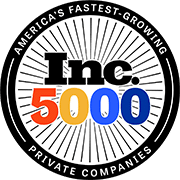Supplier Diversity Is Key to a Strong, Inclusive Recovery
Over the past year, COVID disrupted businesses around the globe and left behind a social and economic legacy that will last for quite a while. Companies responded by reassessing business models, embracing new technologies, and restructuring their approach to suppliers. Flexibility and agility remain key as organizations seek to position themselves for long-term resiliency in the wake of the pandemic’s upheaval.
With the numerous inequalities brought to light by the pandemic, many organizations are increasing their focus on issues pertaining to diversity, equity, and equality. Companies are strengthening their commitments to local sourcing, sustainable procurement, fair employment practices, and diverse supply chains. In this article, we look at one of these components, supplier diversity. In addition to offering broad social benefits, inclusive procurement strategies are a fundamental component of an equitable recovery.
What Is Supplier Diversity?
Supplier diversity entails building and maintaining a supply chain that includes underrepresented groups, including businesses that are owned and operated by women, minorities, LGBTQ+ individuals, people with disabilities, and veterans. Following the 1967 Detroit riot, General Motors set up one of the country’s first corporate supplier diversity programs, and many other auto companies followed.1 In the years since, corporations across industries have implemented supplier diversity programs to conduct business in a fair and equitable manner while strengthening local communities.
Today, corporate supplier diversity programs aim to provide all qualified vendors with fair and equal opportunities to compete for business. Supplier diversity programs can lead to long-term, symbiotic relationships, with competitive advantages for the hiring company and an array of benefits for diverse suppliers.
A Socially Responsible Approach That’s Good for Business
There are a multitude of reasons why supplier diversity continues to gain momentum. For one, it’s good for business. Diverse companies have a track record of success and benefit their partners by offering increased efficiency, innovation, and a competitive advantage with changing demographics.
Diversity is a meaningful component of a successful, innovative business. McKinsey & Company found that companies in the top quartile for gender or racial and ethnic diversity are more likely to have financial returns above their national industry medians, while those in the bottom quartile are less likely to achieve above-average returns. A recent study by Boston Consulting Group discovered that companies with diverse management teams recognize 19% higher revenues resulting from innovation than those with less diversity. Included in these numbers are start-ups, tech companies, and other industries where innovation is key.
Supplier diversity programs provide an array of benefits that support corporate goals:
- An inclusive procurement strategy broadens the pool of suppliers, which can result in higher quality and competitive pricing.
- At a time where flexibility is desirable, increasing diversity helps supply chains become more agile and resilient to changing markets.
- Because many diverse businesses are smaller, they are often more adaptable than larger companies, and able to ramp up faster and pivot to accommodate changing business needs.
- Diverse suppliers position companies to better reach untapped markets and new demographic segments.
Get in Touch!
Reach out to discuss your next translation project with a member of our team.
Supplier Diversity Elevates Brand Perception
U.S. demographics are shifting, and diversity is viewed in an increasingly favorable light. Partnering with diverse businesses helps organizations strengthen brand recognition, marketing efforts, and company culture. In 2019, research company Hootology developed a tracking survey to help corporations measure the impact that supplier diversity programs had on their bottom line. The study found that when people are aware of supplier diversity programs, brand value is elevated, raising scores for assorted brand recognition metrics by 25–70%.
In a 2019 study for Coca-Cola, Hootology, itself a diverse supplier, found that people who were aware of Coca-Cola’s supplier diversity initiatives were 45% more likely to perceive the brand as valuing diversity, 25% were more likely to think favorably about the brand, and 49% were more likely to buy Coca-Cola products. Hootology estimated that these positive perceptions would result in an additional 670,000 consumers using Coca-Cola’s products more frequently.2
Diverse Suppliers Are Critical to Recovering Communities
When small businesses thrive, communities thrive. Wharton Magazine reports that 99.9% of all U.S. firms are considered small businesses, employing more than half of the country’s workforce. Women- and minority-owned businesses make up more than 50% of these small businesses. Diverse suppliers help to stimulate economic recovery by boosting job creation in traditionally underserved communities. And they are well positioned to do so.
Featured Services
Learn more about…
Embracing Supplier Diversity
While the full impact of COVID-19 has yet to be seen, initial reports certainly show that businesses owned by women and minorities have been disproportionately affected by the pandemic. This makes it more essential than ever to embrace supplier diversity efforts. Many of the characteristics of diverse companies, such as innovation and resilience, are in high demand as we proceed on the road to recovery.
Eriksen Translations has remained wholly woman owned and operated since our founding in 1986. We continue to be inspired by the resilience of the many exceptional diverse business owners, along with the organizations that are bolstering their commitments to supplier diversity.
 Named to the 2024 Inc. 5000 list of fastest-growing companies and ranked among the world’s top 100 language service providers by CSA Research
Named to the 2024 Inc. 5000 list of fastest-growing companies and ranked among the world’s top 100 language service providers by CSA Research


